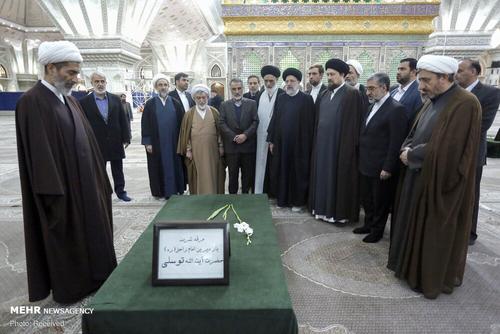The Iranians are of Persian ethnicity, and they have had no holidays with the Jews in history. Instead, they have been hostile to the Arabs for a long time. The Iran-Iraq War in 1980 can also be said to be a war between Iran and the entire Arab country. Before the Islamic Revolution broke out in Iran in 1979, Iran and Israel had been close allies due to the ancient cultural ties and common strategic interests between Persians and Jews.

The history of the ancestors of the Israeli Jews and the Persians, the ancestors of the Iranians, can be traced back to more than 2500 years ago. In the 11th century BC, the king of ancient Israel, David, unified the tribes of Judea, established the Kingdom of Israel, and established Jerusalem as the capital. After that, it split into North and South, the Kingdom of Israel and the Kingdom of Judea.
In January 1979, the Islamic Revolution occurred in Iran. King Pahlavi was forced to go into exile. The religious leader Khomeini returned to China and established an Islamic Republic with a unity of politics and religion. Due to the special relationship between the Pahlavi dynasty and the United States and the United States’ favoritism and support for Israel on the Arab-Israeli issue, Khomeini always intertwined the struggle against the Pahlavi king with the anti-American and anti-Israeli struggle. Therefore, Khomeini The understanding and knowledge of the Israeli state determines that the relationship between Iran and Israel will inevitably undergo a fundamental change compared with the Pahlavi period.
In the bilateral relations between Israel and Iran since the new century, there are two key nodes. The first node is the "9.11 Incident." After the "9.11 Incident", the United States launched a global war on terrorism, placing Iran at the top of the blacklist of countries supporting international terrorism, and also referred to Iran as the "axis of evil."
As the Arab world unanimously believes that the United States has always favored Israel in the Middle East peace process, Iran also believes that Israel is the United States’ agent in the Middle East. The increasingly powerful conservatives in Iran have also consistently accused the US hegemony in the Middle East for the benefit of Israel. It can be seen that the deterioration of relations between Iran and Israel in the post-September 11 era is by no means as simple as bilateral relations and complicated regional security. External factors such as the pattern and religious ideology have led to the continued deterioration of the relationship between Iraq and Israel in the post-September 11 era.
The second key node in the bilateral relations between Israel and Iran since the new century is the "Iranian nuclear issue." Worries about Iran’s possible possession of nuclear weapons have made Israelis more anxious. Israeli officials and military commanders have repeatedly called on the international community to exert political and economic pressure on Iran, and hinted that if pressure from the international community cannot stop Iran’s nuclear weapons program, Israel It may unilaterally use force to strike Iran’s nuclear facilities; and Iran is not to be outdone, and verbally criticizes Israel for its hegemony and arrogance.




 Account not verified
Account not verified